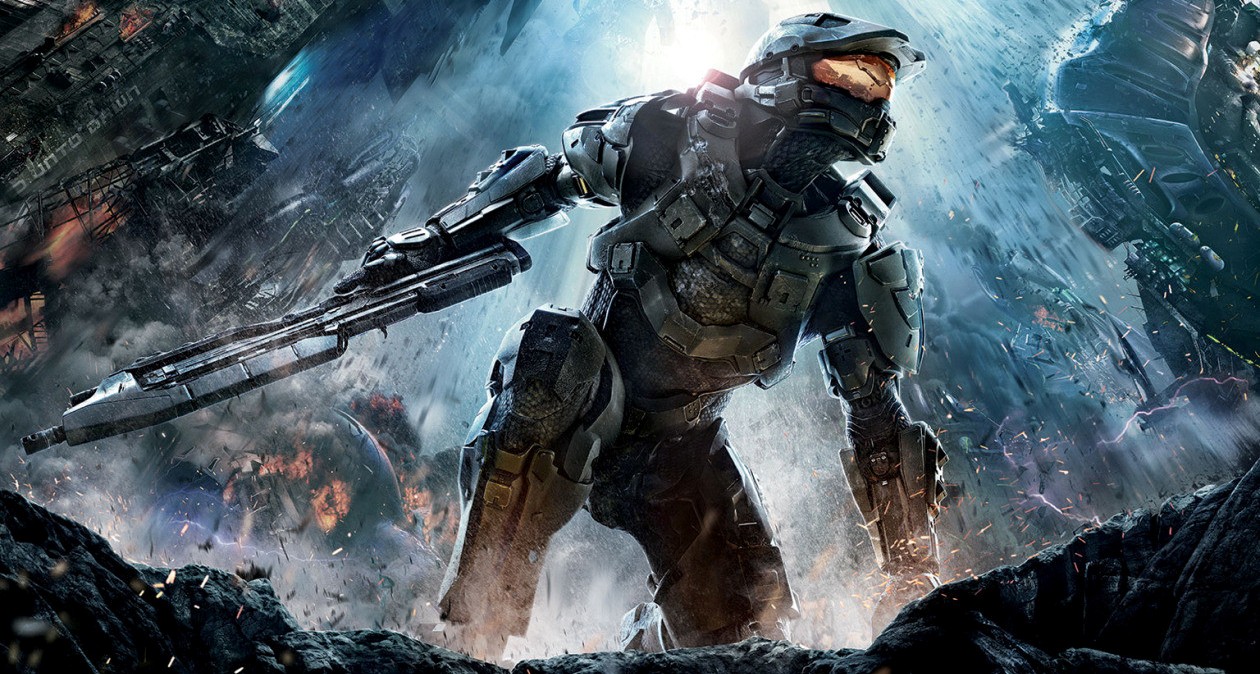
Ah, Halo. The Xbox’s original killer app. A franchise with a long and storied history, the Halo series has been a mainstay in gaming culture for almost two decades. In most games, players assume the role of Master Chief, a Spartan super-soldier, in his quest to save humanity from a dogmatic alien Covenant that wants them all dead. Along the way, you solve the mystery of the extinct Forerunners, with your sarcastic yet helpful AI companion, Cortana. The player soon finds out that the eponymous Halos are super-weapons built by the Forerunners for the purpose of cleansing the galaxy of life in order to starve the deadly civilisation consuming parasite known as The Flood. It truly is a franchise that blends many different genres together. Elements of military sci-fi, soft sci-fi, fantasy, horror, war epics, space opera, and many more genres can be found in the DNA of this series. Halo captured the imagination of the gaming audience and granted Microsoft a massive boost to the sales of their original Xbox console. In many ways, this series is responsible for the success of Microsoft in the console market.
Yet the celebrated series has been on a decline for several years now. After the release of Halo: Reach, Bungie handed over the series to Microsoft, who formed a new studio, 343 Industries, to develop future titles in the franchise. Their track record is a mixed one. The first game of the post-Bungie era, Halo 4, was well-received for its storytelling and single-player campaign, however, the multiplayer was found to be very lacking. The game adopted mechanics from the Call of Duty series, such as load-outs and supply drops, which both fans and critics believed detracted from the series’ unique identity of map control and strategic use of sought-after weapons. Player counts slowly but surely dropped from the glory days of Halo 3 and Reach.
So, 343 reassessed, and got to work on Halo 5: Guardians. An absolutely genius marketing campaign followed. Players were dropped cryptic hints in vague trailers regarding a possible betrayal by Master Chief. Rumours spread that the new Halo would focus on John-117 going rogue; his rival, Spartan Locke, hunting him down on behalf of the enigmatic Office of Naval Intelligence. Then, Hunt the Truth debuted. An in-universe audio drama in the style of This American Life, Hunt follows journalist Benjamin Giraud (voiced by Halo fan Keegan-Michael Key) in his research into the Master Chief’s origins. Along the way, he discovers a conspiracy relating to both the Chief’s origins and his current, seemingly traitorous, actions. A second season, following ONI Agent Maya Sankar (voiced by Janina Gavankar) was released about a month before Halo 5 was due out. The series proved to be immensely popular. Fans loved the deep, character driven dive into the darkest and most mysterious corners of the Halo universe, brought to life by an all-star cast. It won a Clio in the Audio Drama category, an award that recognizes excellence in advertising. The pre-release hype for the game was unreal after all the effort 343 and Microsoft put into promoting the story. Yet it did not live up to this anticipation.
Upon release, both critics and fans bemoaned Halo 5’s narrative, calling it cliched and predictable. The highly-anticipated storyline regarding the mystery of Master Chief’s had barely any interesting developments, and was resolved in a matter of seconds towards the end of the game. To make matters worse, Cortana returned from her poignant death in Halo 4, but only to become a megalomaniac bent on enslaving humanity. To many fans, it felt like the worst kind of comic-book storytelling. Yet, in contrast to their previous entry, the multiplayer was very well-received. New movement mechanics, game modes, weapons, and vehicles spiced up the Halo meta and brought renewed interest in the series from competitive players. 343 had created the anti-Halo 4. Nevertheless, die hard fans continued to be turned off from the series, many upset with 343’s handling of the story and lore.

So once again, 343 is reassessing their strategy for the sixth main entry in the series, Halo: Infinite. First teased at this year’s E3, not much is known about the title. Yet given developer comments in the downtime since Guardians’ release, it seems 343 is attempting to win back fans of both the singleplayer and multiplayer. Developers hinted in multiple interviews that they realized they got the story wrong for Guardians. Additionally, the writer of the maligned campaign and narrative director for the franchise, Brian Reed, stepped down from his position in early 2017. For multiplayer, the team has said that they want to continue in the direction of Halo 5, but also tone down some of the movement abilities that that game introduced, or even allow players to play a “classic” boots-on-the-ground experience. Even small aspects, such as the art-style used in the Halo: Infinite trailer, has received much praise; with the fanbase rejoicing at the return of the black undersuit and the simplification of Chief’s appearance.
Will this work? Who knows. Halo has certainly fallen from grace; it is no longer the powerhouse that it once was. Player counts drop, the competitive scene is dying, and discussion of the franchise in the public consciousness has become rare. 343 has spent half a decade trying to live up to Bungie’s legendary reputation, but they can’t quite nail it. Excellence is just out of their reach, and overcorrection is common. Will Infinite return the franchise to its throne? We will soon find out.




